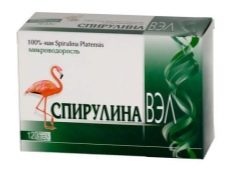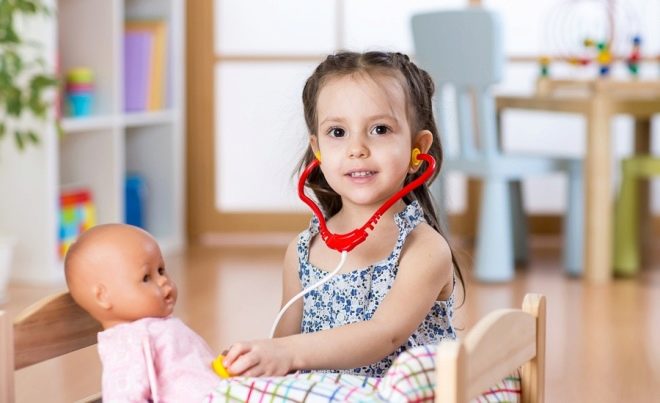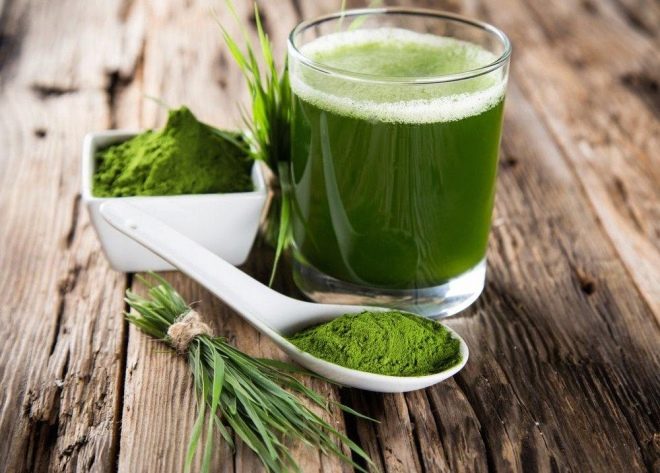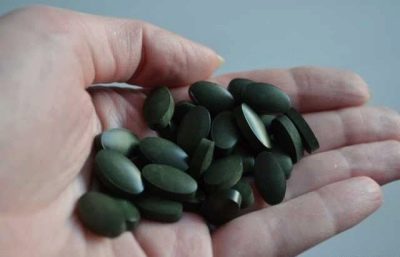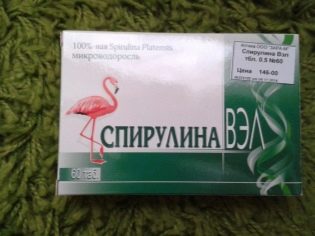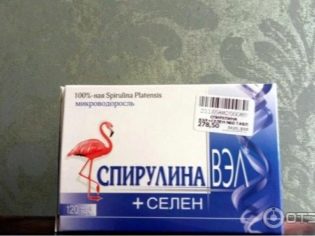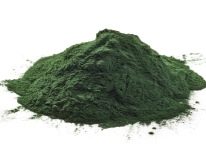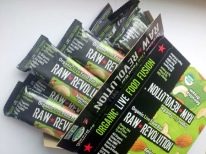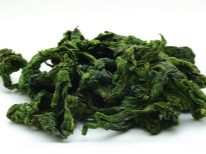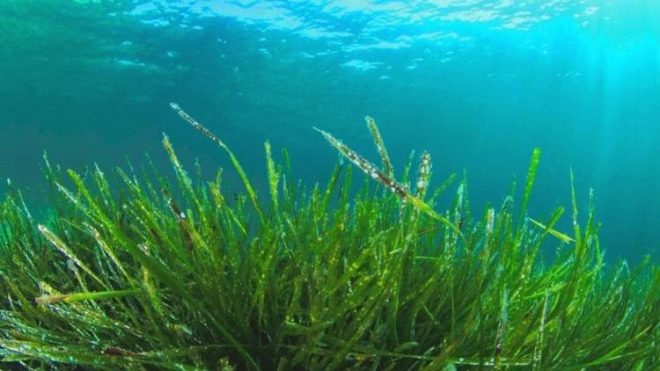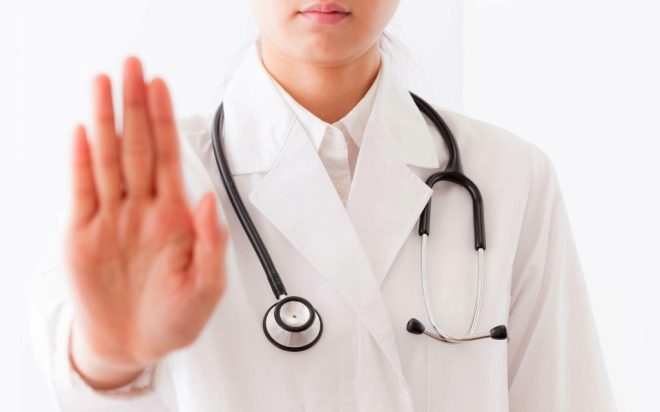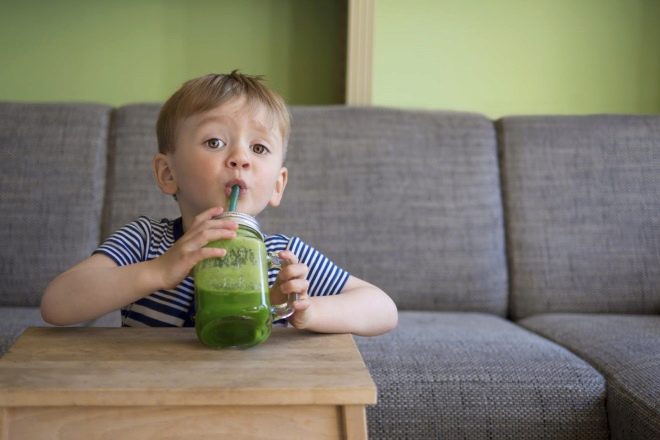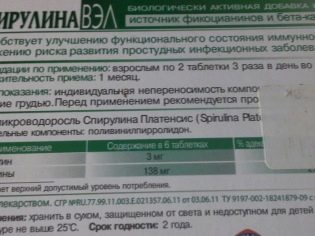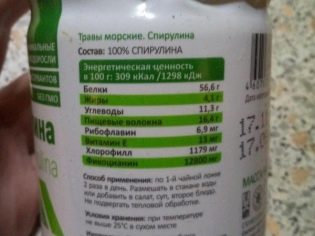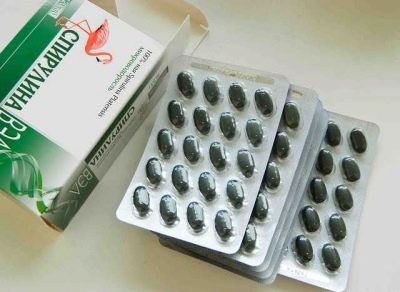Spirulina to children: at what age can you give and how to choose the dosage?
The immunity of the child is weaker and more vulnerable, and therefore children suffer more often than adults. To raise children's immunity is the cherished dream of most moms and dads. For these purposes, you can use the natural drug "Spirulina".
In this material, we will provide detailed instructions to the tool, tell you what is useful for "Spirulina" for children, and how to give it correctly.
Medication or not?
"Spirulina" is not a medicine, but a dietary supplement - a biologically active food supplement. It is created on the basis of a special type of plant - Chinese brown alga Spirulina. Refers to the blue-green microalgae, and in the language of scientists called Spirullina platensis.
The unusual properties of this unicellular algae were familiar to Chinese doctors of antiquity. She was appreciated for the ability to quickly heal the wounds of warriors and prolong the life of the elders.
Today, the quality of algae is used to correct various pathologies that require strengthening the immune system, improving metabolism, and mobilizing the body's reserves.
A dietary supplement is produced at three Russian enterprises: at the DIOD ecological nutrition factory, at the Biosolyar MSU research and production enterprise, and at V-MIN.
Composition and release form
The small alga Spirulina has large reserves of nutrients. It contains 18 essential amino acids for humans, eight of which are considered essential for humans.
It also contains pigments: carotenoids, chlorophyll, phycocyanin. Spirulina has a considerable amount of provitamin A and B vitamins. But it is most rich in minerals, it contains a lot of iodine, selenium, zinc, magnesium, calcium, phosphorus, sodium, iron, and potassium.
How much the child gets the nutrients depends on what particular drug and which manufacturer will be given to him. "Spirulina VEL", for example, contains 0.5 grams of substances from natural raw materials, and "Pantetin" - only 0.3 grams.
On sale drugs from spirulina can be bought in different dosage forms. There is spirulina in tablets, there is a suspension, and even chips from algae, capsules and powder of the dried plant component are also widely used. Quite recently, algae bars were put on the market; manufacturers added nuts, honey and other “goodies” to them.
How does it work?
At the pharmacological level, the active ingredients of algae affect energy metabolism. Imagine this visually quite difficult. Algae reduces the likelihood of excess weight, because it naturally reduces the amount of cholesterol in the blood.
One of the pigments, phycocyanin, is considered a strong natural immunomodulator, and carotene has a moderate antitumor effect. According to experts, dietary supplements have a general strengthening effect on the entire body.
When using this alga, it was found that it helps to eliminate toxins, salts of heavy metals and radioactive substances from the body, and therefore it is often prescribed during the course of treatment of oncological diseases as an auxiliary additive to food.
Proved that the use of spirulina in the intestine increases the number of beneficial bacteria, which are responsible for normal digestion and well-being.
It is believed that the systematic use of dietary supplements is useful for immunity in the period of prevalence of influenza and acute respiratory viral infections, as well as a means of excellent strengthening the overall tone, which is very important for children experiencing severe physical and mental stress.
Indications
Manufacturers claim that dietary supplements can be successfully used in the treatment and prevention of seven dozens of very different pathologies: diseases of the heart, blood, digestive organs, cancer diseases, and dermatological problems.
In practice, the Chinese algae supplement is most often recommended for children who have a deficiency of vitamins and minerals, if necessary, to conduct a gentle and delicate inner cleansing of the body from toxins and slags, with metabolic disorders. Especially the supplement is recommended for frequently ill children to strengthen the immune system.
The alga is shown to adolescents because it can stimulate growth. And for skin problems, you can make healing masks with it.
Contraindications
Since this is not a medicine, but still a biological additive, there are few contraindications in the corresponding list of instructions for use. Among them there is only individual intolerance to algae and its components. Experts note that this intolerance is extremely rare.
With caution is recommended to take dietary supplements in the presence of problems with the gall bladder, as well as with kidney stones.
Age restrictions
It is possible to give drugs to children on the basis of this seaweed. At the same time, manufacturers do not limit the age of young patients; therefore, with the permission of a physician, BAA can be given from any age.
In order to avoid an allergic reaction, usually supplement is recommended for children from 3 years.
How to use?
Children up to 5 years old usually recommend 1 tablet for the whole day (half a tablet for two doses), for children over this age, 1-2 tablets twice a day. For teens, you can increase the dosage to 2 tablets twice a day.
It is considered optimal to take dietary supplements either half an hour before a meal, or with a meal, while the drug in powder form can be mixed with milk or compote and give the child a drink.
With each particular disease, the dosage and frequency of the dietary supplement is determined individually. A prophylactic course to increase immunity is usually 1-2 months.
Side Effects and Overdose
Cases of overdose have been identified, side effects in the form of nausea, diarrhea and headache are very rare.
Purchase and storage
The supplement is sold in any pharmacy, a prescription for it is not required. Stored two years from the date of manufacture in a dry and dark place at room temperature.
Reviews
Most reviews are positive. Many parents prefer to give dietary supplements to children in preparation for visiting the kindergarten, as well as during the period of mass incidence of viral ailments.
There are also reviews about the complete absence of effect after several treatment or prophylactic courses of “Spirulina”, but the child has practically no reviews about allergy to algae, and therefore we can safely try to give this supplement, if, of course, the pediatrician has no objections.
A little story about Spirulina, see the following video.
